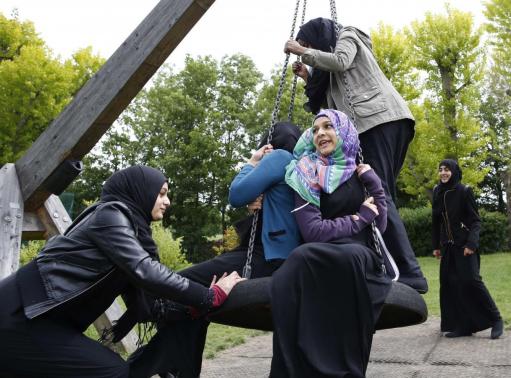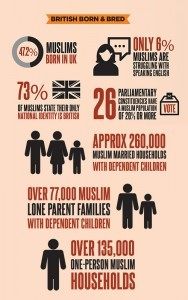Only 29 per cent of Muslim women aged 16-24 are in employment, compared to 50 per cent in the population as a whole, a report has revealed.
The Muslim Council of Britain has released statistics based on the 2011 census which shows there is a higher rate of unemployment and economic inactivity in the Muslim population, with more women staying at home to look after the family. For women aged 25 to 49, it says that 57% of Muslim women were in employment, compared with 80% of women overall.
But it does show a high proportion of Muslims are small employers or self employed and there has been a significant reduction in the percentage of Muslims with no qualifications since 2011. And 24% of Muslims over the age of 16 are qualified to degree level, compared to 27% the general population, with the group lagging behind the Sikh and Hindu communities, at 30 per cent and 45 per cent respectively. There were 329,694 Muslim full-time students in 2011 – 43% female and 57% male.
The percentage within the Muslim population with self-declared ‘bad or very bad health’ for all age groups is 5.5%, which is similar to the overall population in this category of 5.4%. However for the age group of 50 years and above, it is 24.1% for Muslims, which is double the percentage for the population as a whole (12.1%).
Muslims are present in all regions of England and Wales, but London has the highest population of Muslims. 26 Parliamentary constituencies have a Muslim population of 20% or more which, they say, is ‘something to note as the 2015 General Election draws near.’
But it highlights that there are still a percentage of Muslims living in Britain who have problems speaking English, working out at 162,000 which is equal to over two parliamentary constituencies. 73 per cent choose their national identity as British, meaning 27 per cent, or three quarters of a million Muslims living in the UK, do not consider themselves as part of this country.
The changing demographics have had a considerable impact on the British education system, with statistics showing that the number of Muslim children in school in England and Wales has doubled since 2011.
The number of Muslims in prison is ‘a cause for concern’, with 13 per cent of the prison population currently incarcerated.
“Muslims in Numbers is a frank snapshot of the state of British Muslim life based on numbers taken from the 2011 Census. This report is the first of its kind; it is the first detailed study of the characteristics of the Muslim population emerging from the 2011 Census,” said Dr Sundas Ali, an MCB analyst.
The total number of Muslims in the UK rose from 1.55m in 2001 to 2.7m in 2011.


COMMENTS
Please let us know if you're having issues with commenting.